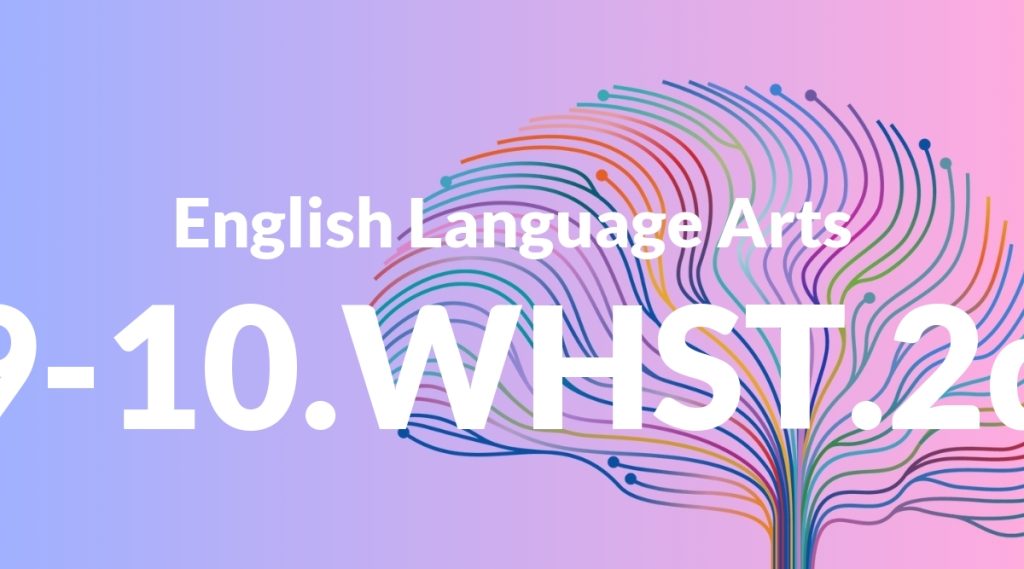Standard: 9-10.WHST.2d – Use precise language and domain-specific vocabulary to manage the complexity of the topic and convey a style appropriate to the discipline and context as well as to the expertise of likely readers.
Grade level: Grade 9-10
Subject: English Language Arts
Domain: Writing: History, Science & Technical Subjects
Teacher Overview
This standard emphasizes the importance of using precise language and domain-specific vocabulary to effectively manage the complexity of a topic. It is crucial for students to convey their ideas in a style that is appropriate to the discipline and context, ensuring that their writing is clear and accessible to their intended audience. Mastering this standard will enhance students’ ability to communicate complex ideas in various academic and professional settings. Students should have a solid grasp of basic subject-specific vocabulary and the ability to write coherent sentences and paragraphs. They should also be familiar with the general structure and style of different types of writing.
Students will be able to write effectively in various academic and professional contexts, adapting their writing style to different audiences and purposes. They will be capable of communicating complex ideas clearly and accurately.
Common Misconception 1
Some students might think that using overly complex words makes their writing more sophisticated. This is incorrect because clarity and appropriateness of vocabulary are more important than complexity. Overly complex words can make the writing difficult to understand.
Intervention 1
Encourage students to prioritize clarity and appropriateness of vocabulary. Provide examples of effective writing that uses precise but accessible language. Conduct exercises where students rewrite complex sentences using simpler, more precise language.
Common Misconception 2
Another common misconception is that domain-specific vocabulary is only necessary for technical subjects. This is incorrect because domain-specific vocabulary is important across all disciplines, including literature and history, to convey precise meanings and enhance understanding.
Intervention 2
Show students examples of domain-specific vocabulary in various contexts, including literature and history. Conduct activities where students identify and use domain-specific vocabulary in different types of writing.
Prerequisite Knowledge
Students should have a basic understanding of subject-specific vocabulary and the ability to write coherent sentences and paragraphs. Familiarity with the general structure and style of different types of writing, such as essays, reports, and technical documents, is also important.
Subsequent Knowledge
After mastering this standard, students will be able to write more effectively in various academic and professional contexts. They will develop skills in adapting their writing style to different audiences and purposes, enhancing their ability to communicate complex ideas clearly and accurately.
Instructional Activities
- Vocabulary building exercises focused on domain-specific terms
- Peer review sessions to identify and suggest improvements in vocabulary usage
- Writing assignments that require the use of precise language and domain-specific vocabulary
- Analyzing excerpts from professional texts to identify effective vocabulary use
- Creating glossaries of domain-specific terms for different subjects




